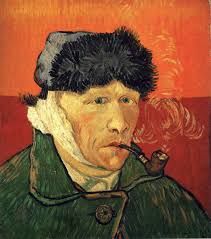The idiom “elbow grease” refers to strenuous physical labor, but we all know how laborious writing can sometimes be. The etymology of the phrase is uncertain. One 17th century source translates it as “it smells of lamp,” as in the midnight oil one burns when working late into the night, as many of us writers sometimes do. Oddly enough, the phrase has changed little in meaning. Then and now, it connotes diligent, hard work.
Enter Peter Elbow —whose name is, depending on your point of view, rather odd or incredibly convenient— a Professor of English Emeritus at the University of Massachusetts Amherst known for his many books which attempt to take the difficult (and the fear) out of writing. Elbow began his PhD in English at Harvard University in the late ‘50s, but his persistent struggles with writing caused him to quit. He began teaching, first at M.I.T., and became an early proponent of freewriting (which I wrote about in my last blog post), but it was his book, Writing Without Teachers (Oxford UP, 1973,1998,), that turned the freewriting technique into a popular pedagogical practice. As I recall (I can no longer find the book to confirm), it was in this book that he presented the Elbow Method. The technique is as simple as it is non-threatening. With a topic in mind (and when the mind is typically almost paralyzed with swirling thoughts), you sit down and write all that you can, without editing or judging, for 15 or 20 minutes. Then you look at what you’ve written, identify the strongest sentence and circle it. That sentence then goes at the top of a new page and you begin writing again, letting the sentence sharpen your focus. The process is repeated three times, at which point you have a solid draft and the dust has settled around the swirling thoughts. Elbow stresses that one of the benefits of writing this way is that the more a writer writes, not only does she have more to work with, but she also has more to throw away. I have used the Elbow Method to great effect, and more recently, used it on a poem without being fully aware I was doing so.
 Last spring, under the pressure of too much deadline and too few ideas, I began a poem about sound (I think), where I described an undergrad course I took at Berklee College of Music called Ear Training. The idea of sound turned to hearing which turned, somehow, to Van Gogh and soon I was looking for fancy words to describe the almost indescribable color and movement of the olive groves he painted outside the asylum at St. Remy. The poem, 33 lines long, had become unhinged. I knew it needed focus. My instincts were telling me the poem needed to say more —with less. One line leapt out at me. It was the one that had surprised me the most when I wrote it, a line in which I described Van Gogh’s severed ear as a “fleshy orphan.” While I didn’t exactly put that line at the top of a new page, I did let it drive a new draft. I cut the Ear Training material (no pun intended), which was just ramp-up, and I scrubbed away all the verbiage about colors and olive trees. Much has been written already about Van Gogh, his tortured life, his brilliant paintings. I didn’t feel my poem needed to cover that well-worn ground. Instead, I decided to focus on the story of the severed ear, to let that odd tale do the telling. The finished poem, a third of the original in length, is titled, “An Orphan for Rachel.” In it, I mention fellow painter Gauguin, the well-known image of Van Gogh’s gauze-wrapped head, even the prostitute (Rachel of the title) he presented the ear to —but I never name Van Gogh. It’s a better poem for this final, unexpected bit of elbow work. Less is, sometimes, more.
Last spring, under the pressure of too much deadline and too few ideas, I began a poem about sound (I think), where I described an undergrad course I took at Berklee College of Music called Ear Training. The idea of sound turned to hearing which turned, somehow, to Van Gogh and soon I was looking for fancy words to describe the almost indescribable color and movement of the olive groves he painted outside the asylum at St. Remy. The poem, 33 lines long, had become unhinged. I knew it needed focus. My instincts were telling me the poem needed to say more —with less. One line leapt out at me. It was the one that had surprised me the most when I wrote it, a line in which I described Van Gogh’s severed ear as a “fleshy orphan.” While I didn’t exactly put that line at the top of a new page, I did let it drive a new draft. I cut the Ear Training material (no pun intended), which was just ramp-up, and I scrubbed away all the verbiage about colors and olive trees. Much has been written already about Van Gogh, his tortured life, his brilliant paintings. I didn’t feel my poem needed to cover that well-worn ground. Instead, I decided to focus on the story of the severed ear, to let that odd tale do the telling. The finished poem, a third of the original in length, is titled, “An Orphan for Rachel.” In it, I mention fellow painter Gauguin, the well-known image of Van Gogh’s gauze-wrapped head, even the prostitute (Rachel of the title) he presented the ear to —but I never name Van Gogh. It’s a better poem for this final, unexpected bit of elbow work. Less is, sometimes, more.
—Jane Poirier Hart, WROB Poetry Fellow

